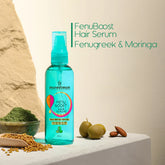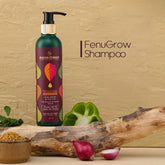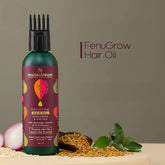Adopt these Ayurvedic Remedies for Dry Scalp Treatment

Is your itchy, dry scalp causing you continual stress and anxiety? An itchy, scaly, and dry scalp can cause discomfort and shame in almost any season or climate. Before entering into ayurvedic remedies for dry scalp treatment and preventative measures, it is critical to determine the underlying cause of dry scalp. This will assist you in dealing with your dry scalp issue effectively and preventing it from bothering you in the future.
Continue reading to learn more about the causes, indications, remedies, and preventative strategies for dry scalp treatment.
What is the reason behind a Dry Scalp?
Discomfort, flaking, and constant itching are signs that you have dry skin. This indicates that your skin does not generate enough natural oils to keep itself moisturized, hydrated, and nourished. Likewise, your scalp may become dry and flaky as a result of similar symptoms.
Below-mentioned are a few reasons for a dry scalp:
1) Shampooing at frequent intervals: Shampooing your hair often removes the natural oils found in your scalp, which aid in moisturizing and nurturing your hair and scalp. Excessive washing can dry up your scalp and hair to the point that your scalp gets dry and itchy, and your hair becomes weak and brittle, resulting in hair breakage.
2) Excessive usage of hair styling products: A dry scalp that itches, becomes red, and flakes after washing might be a sign of contact dermatitis. When you use particular haircare and styling products in your hair, such as soaps, shampoos, dyes, and serums, you might develop scalp sensitivity. If you get an allergic response after dying your hair black, it might be due to the presence of PPD (Paraphenylenediamine) in the black hair color.
3) Transitions in the weather and seasons: During the winter season, there is a significant reduction in humidity in the air due to the severely cold climatic conditions. This harsh weather condition causes dry, itchy skin, including your scalp and hair. In addition, during the hot summer months, you may suffer a dry, red, and itchy scalp.
4) Eczema: Eczema is a common skin condition that affects both men and women, as well as children. It often causes your scalp to become excessively dry, itchy, red, and cracked. Atopic eczema is a kind of eczema that mostly affects those who have allergies. It is also inherited, affecting many generations of the same family. Stress, seasonal changes, chemical-laden hair styling products, and harsh chemicals in hair color can all cause eczema spots to appear on your scalp. You may also notice dry and itchy skin on your cheeks, elbows, wrists, and knees.
5) Scalp Psoriasis: Psoriasis has a negative influence on your immune system and causes your body to produce abnormal skin cells. These excess cells then create a thick layer on the top layer of your skin, resulting in scaly, painful plaques. Psoriasis can impact your nails, back, feet, hands, ears, and face. It may also trigger itching spots on the back of your neck, forehead, and scalp.
What are the indications of a Dry Scalp?
When your skin is parched and has a low moisture level, you will notice dryness on your scalp. Your scalp gets dry, itchy, and flaky as the moisture level decreases. When your scalp gets dry and itchy, the skin on other parts of your body becomes dry and irritated as well.
The following are some of the signs of a dry scalp:
- Itchy Skin
- Blisters
- Dandruff
- Soreness
- Hair Loss
How to Treat a Dry Scalp with the help of Ayurveda?
While you are determining the root reason for your dry scalp, you should prevent scratching and vigorously rubbing your scalp. Scratching aggravates your scalp and may exacerbate your problem.
You can cure this condition with a few basic but efficient Ayurvedic dry scalp treatments. However, if the scalp problem persists with no alleviation, you should visit a professional dermatologist or Ayurvedic physician for proper diagnosis and treatment.
1) A Thorough Head Massage with Ayurvedic Oils: A restorative head massage is advised at least once every two weeks in Ayurveda for harmonizing the Doshas in your system and bolstering the health of your hair and scalp. Herbal oils containing active compounds like Brahmi, Bhringraj, and other powerful herbs enhance blood circulation in your scalp, which also aids in the release of vital nutrients to your hair follicles. According to ancient Ayurvedic scriptures, daily scalp massage with herbal oils balances the Vata Dosha and lowers hair loss. It also aids in the prevention of hair and scalp dryness.
2) Use Ayurvedic Herbs for Dry Scalp Treatment: Indian herbs have played a vital role in Ayurveda since ancient times since they provided a curative treatment for a variety of diseases, problems, and situations. These are obtained from plants, and the resin, bark, roots, seeds, fruits, flowers, and leaves are used to make herbal formulations and treatments.

Here are a few examples of herbal remedies that can help with your dry scalp treatment:
- Brahmi: Brahmi is famed for its ability to soothe, calm, and compose the mind, promoting a state of serenity. It also nourishes and revitalizes your hair, scalp, and digestive tract. Because of its therapeutic ability, it is a crucial component of any hair care regimen. Plant alkaloids, present in the herb, stimulate protein synthesis.
- Fenugreek (Methi): This powerful herb, also known as an ayurvedic potion, is in charge of feeding and strengthening hair follicles as well as curing sensitive scalp diseases. Methi seeds are high in folic acid, vitamins A, K, and C, making this one of the best herbal treatments.
- Bhringraj: Bhringraj, sometimes known as the "King of Hair," is a comforting botanical that promotes and feeds hair roots. It is well-known for its ability to maintain the natural color and texture of your hair, encourage hair growth, and relax and soothe your mind. This herb is known as one of the best ingredients for a dry scalp treatment.
- Apple Cider Vinegar (ACV): Another vital herb used in dry scalp treatment Apple Cider Vinegar, is high in phenols and plant vitamins including Vitamin B and C, which helps restore the hair and maintain optimal hair health. It contains amino acids and pectin, both of which help to strengthen and moisturize your hair. The acids [malic and acetic] help to compress the hair cuticles, increasing luster and smoothness. ACV also has antimicrobial properties, which may help to reduce the quantity of yeast on the scalp, promoting optimal scalp health.
- Neem: The high amount of antioxidants in neem leaves prevents premature greying of hair caused by hormone imbalance, UV damage, and stress. Neem leaves assist your hair greatly by replenishing dry strands and boosting their health. They are a natural alternative for scalp infections and dandruff since they have antifungal and antibacterial characteristics that help eradicate dandruff for good and perform wonderfully on itchy and flaky scalps.
- Coconut Oil: Coconut oil has antibacterial, anti-inflammatory, and antioxidant qualities, and it also helps to restore the skin's barriers. It aids in the treatment of dandruff by boosting the "good" bacteria in your skin and decreasing inflammation. Lauded for its soothing property, coconut oil is considered an effective remedy for dry scalp treatment.
3) Ayurvedic Shampoo for Dry Scalp Treatment: If you have minor itching and scalp dryness, consider replacing your normal shampoo with a gentle, herbal, and therapeutic shampoo to properly treat your scalp condition. Instead of using a chemical-laden, harsh shampoo on your hair, consider a gentle hair cleanser that contains active ingredients like apple cider vinegar, fenugreek, neem, and coconut oil. All of these chemicals aid in the relief of dryness and irritation.
4) Pick the appropriate ayurvedic conditioner for dry scalp treatment: The final phase in treating dry scalp and hair is to choose a conditioner that will nourish and hydrate the scalp and hair. Use conditioner infused with ayurvedic herbs such as Fenugreek, Brahmi, and Bhringraj, which sink deep into your hair follicles and condition and rejuvenate your scalp.
How to Prevent Dry Scalp?
Now that you're aware of the ayurvedic remedies for dry scalp treatment, use these basic preventative actions to combat the problem.
- Use gentle, moisturizing hair care products that will not irritate your scalp more.
- Increase your regular intake of Omega-3 fatty acids, which assist to keep your scalp moist and reduce inflammation caused by an irritated scalp.
- Regular use of ayurvedic hair treatments, which help decrease the appearance of flakes as well as hydrate and nourish your scalp, is one of the best strategies to combat scalp dryness.
- Avoid using chemical-laden products which tend to irritate your scalp more.
- Before washing your hair, make sure you shampoo with cold, regular, or lukewarm water. Always finish with a cold rinse to seal your open hair cuticles. The cold rinse promotes blood circulation in your hair and scalp while increasing natural shine.





